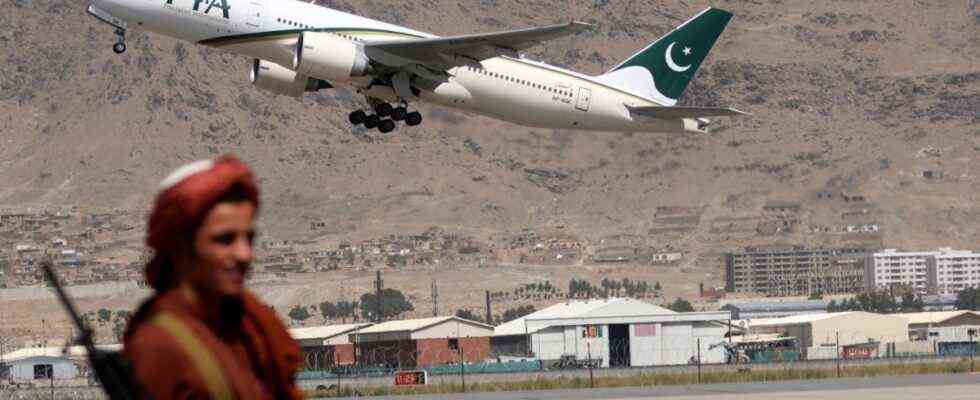They are afraid for their life or that of their family. They are desperate over bureaucratic hurdles and often don’t know what to do next. And they live in the middle of Germany, also in Munich.
For example Farzad S .: The young man ran a house for deported people in Afghanistan and worked for a non-governmental organization for many years until the Taliban took power in mid-August and the Allies withdrew their troops from Afghanistan. Like many tens of thousands of people, Farzad S. was left defenseless, although he was targeted by the terrorist militias.
He was on a list of people to whom Germany wanted to give protection and who did not have to apply for asylum. In the end he made his way to Pakistan to fly out from there. He has been in Munich for four days. Instead of being caught here by the authorities, he was first put in “a camp”, as he says.
Or there is Arif H .. The father ran his own newspaper in Afghanistan, his brother worked like him, his sister and his sister-in-law as a journalist. But it became too dangerous in the country, the family was threatened and attacked again and again, and there were also bomb attacks. Part of the family was able to flee, she is now safe in Germany and has the right to stay.
For months, Arif H., who speaks German without an accent, has been trying to get his sister, sister-in-law and the children of the two women from Afghanistan, but in vain. The Taliban are looking for the journalists, they no longer go out of the house, the children are no longer allowed to go to school or kindergarten. Now they are trying to leave the country on their own, they no longer hope for help from Germany. This Tuesday, Arif H. is sitting in a room of the Bavarian Refugee Council in Munich and says: “We feel completely abandoned at the moment.”
Some former local workers complain that they are being put under pressure by the authorities in Germany
This is what all the people who had to flee from Afghanistan complain and who are now involved in a video conference of the Refugee Council to talk about their fears and problems. According to the refugee council, the German authorities are “in no way able to keep their dry acceptance promise and at least get the German local staff” and a few human rights activists, journalists, women’s rights activists and other people threatened from the country destroyed by the civil war. Not only is there a lack of responsibilities and contacts, “but obviously also the will”.
The Bavarian Refugee Council therefore calls on the Federal Government to ensure that the people affected can safely leave Afghanistan and enter other safe countries. Entry papers for family members or documents for work or training in Germany would now have to be issued as unbureaucratically as possible.
In fact, there are different responsibilities. People in Afghanistan try to get through the International Organization for Migration (IOM) on a list that entitles them to fly out to Germany. But there seems to be a problem. The people who talked about their fates in the video conference have seen that the Federal Foreign Office provides different information than the German government, for example. Once people are in Germany, it is not uncommon for them to receive an asylum application form instead of a residence permit.
That’s what happened to Hamid M. He was able to travel to Germany as a so-called local worker. But then he was first placed in a Bavarian anchor center, then in Augsburg and he was told that he had to apply for asylum. He had worked in Afghanistan for the police and for the Federal Intelligence Service BND. “I was put under pressure,” he says. But he is fighting for his residence permit in Germany.
Laila M. has a German passport. She has lived here for many years, but her husband is still in Afghanistan. Three years ago, she applied to the German embassy in Pakistan’s capital that her husband could join her. “But only after 15 months did I get the message from the Federal Foreign Office that he could get out of Afghanistan in January 2020,” she says.
Again it didn’t work. Since then, she has called 19 different offices, and has even been to the Foreign Office in Berlin. “But people keep saying that we are not responsible.” In mid-August, the Federal Office for Migration finally told her that her husband should charge his cell phone and be available at all times, then he would be called and soon be flown out. There was never a call. “I don’t know what to do next,” says Laila M. and sobs.

